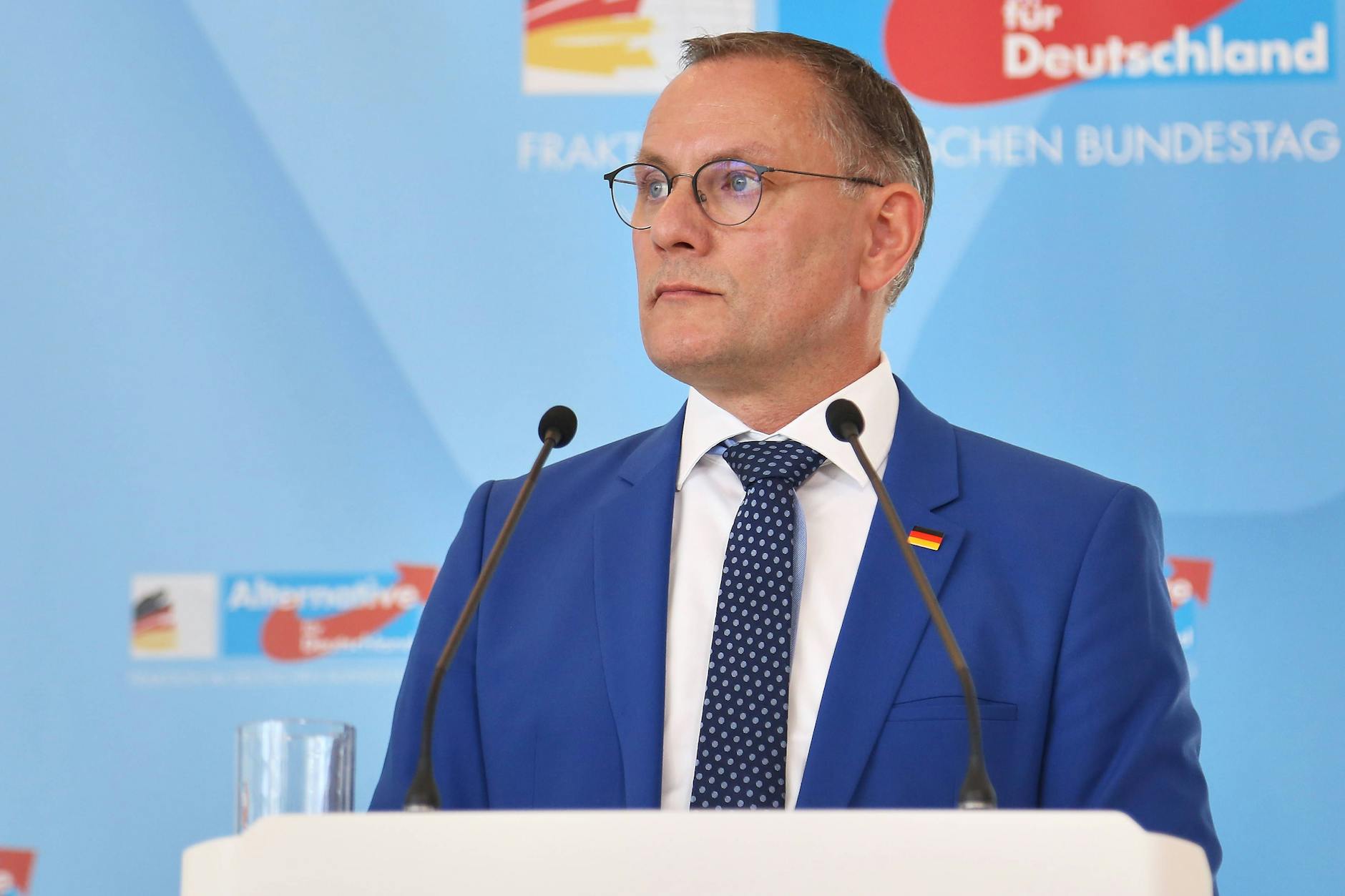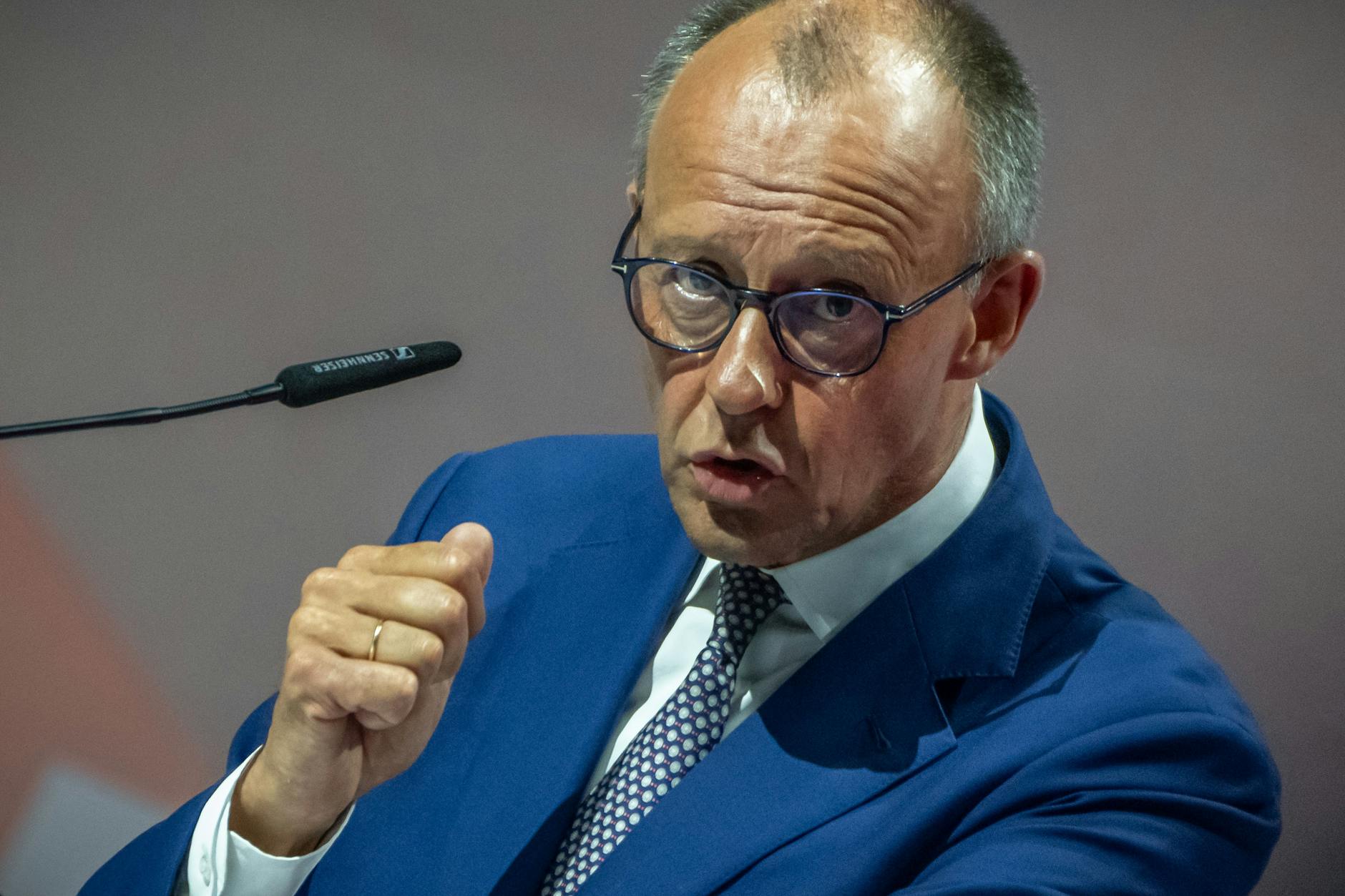AfD and BSW are getting closer: What this means for the balance of power in East Germany

This proximity is explosive: In Thuringia, AfD hardliner Björn Höcke and BSW state chairman Frank Augsten met for a chat – officially. Both sides spoke of a "constructive exchange" – a phrase that raises more questions than it answers. Explosive: According to the AfD, the initiative came from BSW. Are two political extremes converging here – and breaking old taboos?
Just a few days later, AfD leader Tino Chrupalla dropped another bombshell: Yes, there have long been talks at the federal level – between the AfD and the BSW . His goal? "Changing majorities." What sounds harmless could, in fact, lead to a political earthquake: Because this term no longer just stands for flexibility, but for a possible reckoning with the old party logic.
Other AfD politicians confirm the talks with the BSWOther AfD representatives also confirmed the talks – and went even further. Stephan Brandner , the party's deputy federal spokesperson, explained in an interview with the Berliner Zeitung that while he was "not involved in the talks," he was aware that there were also contacts "with individual representatives of the CDU and the CSU." Part of this, Brandner said, was "entering into dialogue with parties where common ground can be found." It was unclear who took the initiative – "in Thuringia , as far as I know, the initiative came from the BSW."
At the same time, Brandner emphasizes that the exchange is worthwhile, but it should not be forgotten that the BSW "is fundamentally a competitor of our party." While the fear that the BSW could steal massive numbers of voters from the AfD has not yet materialized—"quite the opposite." Nevertheless, in certain areas, such as migration, they are pursuing similar goals. This proximity could lead both to voter migration and to occasional cooperation. "If there are overlaps, even if only occasional, then they should be explored."
Kristin Brinker , party and parliamentary group leader of the Berlin AfD, expressed a similar sentiment. She told the Berliner Zeitung: "Why shouldn't we talk to each other? Democracy thrives on discourse and the openness to listen to other viewpoints. And we've always said that we talk to everyone."
Long gone, now back: This is what Sahra Wagenknecht says about the AfDAt the center of this development is once again Sahra Wagenknecht . For months she went into hiding after her narrow defeat in the federal election (4.98 percent). But this week she returned – in high profile at Berlin Central Station, flanked by cameras, with the message: I'm still here. Der Spiegel spoke of a "return tour" that also took her to Thuringia. Of all places, that is, to the place where her rival within the party, Katja Wolf, is active and sits in the state government together with the CDU and SPD. And where the talks with the AfD are now taking place. After all, the AfD and BSW together already have a majority in the Erfurt state parliament.
Nevertheless, Berlin AfD leader Brinker puts things into perspective: “In Thuringia, I don’t see any really relevant movement away from the BSW.”
According to a statement, BSW politician Augsten said that he and Höcke had "spoken constructively and openly about our different views, problems, and perspectives on current state politics." Höcke denied that the AfD had an interest in the state's dysfunction.

But what is the truth behind the alleged rapprochement with the AfD? Sahra Wagenknecht told the Berliner Zeitung: "There are currently no talks. This is a phantom discussion. But if you ask me whether I would also talk to Mr. Chrupalla if there were a concrete reason for it, as was the case in Thuringia during the meeting between the parliamentary group leaders: yes, of course."
This should be normal in a democracy, according to the BSW chairwoman. "The AfD is currently supported by more than one in five voters. Exclusion and speech bans are undemocratic and a slap in the face for these voters, which only binds them even more to the AfD. It was simply stupid that the AfD was again excluded from Bundestag seats. The firewall policy has made the AfD increasingly stronger and should not be continued!"
Berlin-based BSW head Alexander King agrees: "There can be no talk of rapprochement." The discussion in Thuringia addressed a specific problem – nothing more. At the federal level, there are neither discussions nor any reason to hold them.
BSW and AfD have completely different political goals.
And in general: "BSW and AfD have completely different political goals," King emphasizes, especially with regard to Berlin's state politics. For example, in tenant protection, in social policy – and more fundamentally: "The AfD has become a vehicle for right-wing radicals." Collaboration? Out of the question. But: "Elected representatives must be able to speak – that's democracy." He only rejects the blanket stigmatization of all AfD positions as "fascist": "That is arrogance towards the voters."
In Brandenburg , where the BSW governs with the SPD, parliamentary group leader Niels-Olaf Lüders is emphatically sober: "Both the AfD and the CDU are opposition factions in Brandenburg. We are just as open to constructive discussions with the AfD as we are with the CDU. However, we are not actively seeking these discussions because our coalition, together with the SPD, has its own majority in the state parliament." A sentence that leaves room - for willingness to talk as well as for distance.

What is currently emerging in Thuringia may not serve as a model for the federal government, where elections will not be held until 2029, but it could serve as a model for other eastern German states. State elections are scheduled for 2026 in Saxony-Anhalt and Mecklenburg-Western Pomerania . There, the CDU (Saxony-Anhalt) and the SPD (Mecklenburg-Western Pomerania) are particularly worried about their majorities. The AfD has long been the strongest or second-strongest party in both states, and the BSW – with support from Thuringia – could also enter parliament. The prospect: new mathematical majorities beyond the current camps of CDU, SPD, and the Greens. A coalition between the AfD and BSW would break a taboo – but mathematically soon become possible.
For the AfD, an alliance with the BSW could therefore be a strategic jackpot: Finally, a partner in parliament, finally out of political isolation. And a possible alliance with the BSW could redraw the political geography of the republic – not only in Erfurt, but soon also in Magdeburg, Schwerin, Potsdam, and Berlin.
CDU and SPD face a decision on directionThe rapprochement between the AfD and the BSW puts the CDU in a strategic dilemma in eastern Germany. The CDU is in danger of being crushed between an increasingly inclusive AfD and the economically left-leaning, anti-immigration BSW.
While Chancellor Friedrich Merz strictly rules out any cooperation with the AfD – he recently spoke of it as an "openly National Socialist" party – unity at the grassroots level is crumbling. In eastern Germany, the "firewall" is becoming an increasing burden. JU leader Johannes Winkel called for more flexibility in the Welt newspaper and expressed his openness to dialogue with the BSW – where majorities with the SPD or the Greens are insufficient.
The CDU/CSU is therefore faced with a decision: open up to the BSW, as in Thuringia, or the AfD could come to power. Union sources told the Berliner Zeitung on Friday: "We are monitoring developments vigilantly, but it was foreseeable," said one member of parliament. And the SPD ? Things are getting tight for them, too. According to polls nationwide, they are currently polling at just 13 percent . In the eastern German state parliaments, they face a risk of re-election.
Berliner-zeitung



